
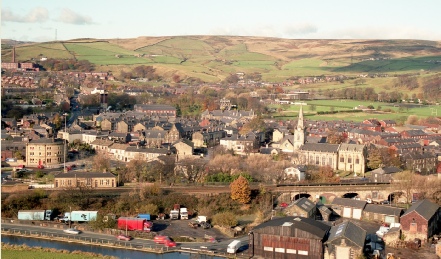
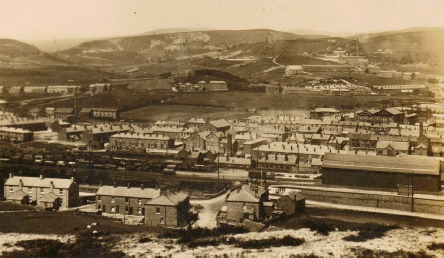
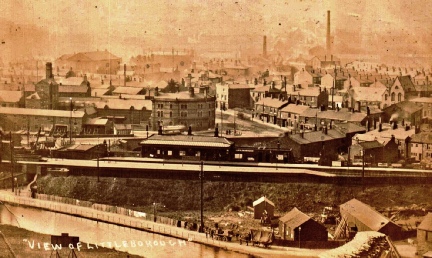
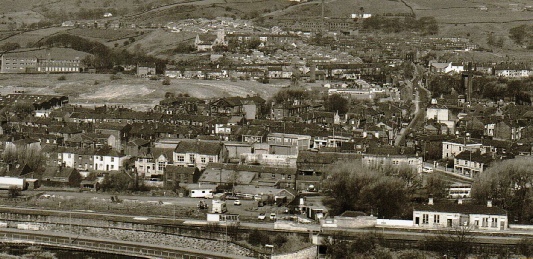


Schofield Families
Two Branches of the Schofield family owned mills in Littleborough – the family of James Schofield who lived and had premises in Heybrook and Buckley and Joseph (and Benjamin) who developed the main Littleborough family business of Joseph Schofield & Co.
Messrs James Schofield and Sons
James’ business was based in Heybrook and Buckley and was developed further by his sons and partners. The Heybrook/Buckley/Smallbridge part of the business is not covered on this website but is detailed within the Booklet by Bernard Pratt.
1821-22 Trade Directories record Messrs Schofield and Sons having a Flannel Mill at New Mill, Littleborough approx where Lidl is now located. The mills switched between Flannels & Fulling but possibly did both. The company was still Fulling in 1888 but by 1891 it was recorded as Dyers and Finishers. Messrs Schofield and Sons involvement at New Mill ceased in 1908.
The Cotton Factory Times (1894) reported that Messrs James Schofield and Sons (Buckley) are commencing Fulling operations at Pike House Mill. Fulling continued there long after Schofields sold out (c1919) until at least 1933 & 1934.
Calliard’s Mill had a long history but not always in continuous productive operation. A Mr John Kershaw of Hursted Nook re-opened Calliard’s mill in 1894 but in 1901 it was noted that Calliard’s mill, which had been closed for some time, had been re-opened by Messrs Schofield and Sons, Flannel Manufacturers. The Schofield family interest in Calliard’s Mill ended in 1919 when their partnership ended.
Partnership of Joseph & Benjamin Schofield
Joseph & Benjamin Schofield both sat on the Grand Jury of the Salford Hundred Sessions in 1840. Benjamin was quoted as a Cotton Spinner but Joseph as a Gentleman. The 1845 and later Trade Directories includes Joseph and Benjamin as Cotton Spinners and Manufacturers (at Croft Head/Town House Mill). The 1851 Directory also mentioned that they Manufactured Fustians (a stout, heavy woven cloth being mainly Cotton but mixed with Flax) at Croft Head Mill. The London Gazette in 1851 announced that the Partnership of Joseph and Benjamin Schofield carrying on business as Fustian Manufacturers and Iron Founders was dissolved owing to the retirement of Benjamin Schofield and will in future be carried on by Joseph Schofield.
Joseph Schofield & Co
The 1852 trade directory thus shows the Fustian Mill & Foundry under Joseph Schofield & Co.. By 1861 it employed 250 men in the Cotton/Fustian business as well as 50 men in the Foundry. Joseph died in 1864 and seven years later (1871) after his sons Joseph and James Schofield had taken over each was shown as employing 250 and 200 men respectively on two sites, James Schofield was at Town House Mill and Joseph at Green Vale Mill. The companies tenure at Green Vale ended in 1893 when the mill fell into the possession of Fothergill & Harveys.
For some 10 years or more during the late 1880s/early 1890s until 1906 Joseph Schofield & Co. operated Brookfield Mill, initially in partnership with Joseph Kershaw & Co and then by itself.
In November 1931 the Yorkshire Post & Leeds Advertiser carried adverts advising that Croft Head Mill together with steam engine, boiler and certain machinery to let – apply Gale Print Works indicating the end of the Schofield family involvement in textiles in Littleborough.
Croft Head Mill ceased processing cotton and during WW2 (owned by Messrs Frederick Scottand Sons of Gale Print Works) it was used by "The International Transport Agency Ltd" based in Manchester for the storage of Cotton Waste for the 'Cotton Control Board'.
It was later occupied by Ambores Ltd, Metal Processes and later still by a furniture manufacture before finally being demolished and replaced by housing.
For more detail on the Joseph Schofield’s Mills see this Booklet by Bernard Pratt
Croft Head or Town House Mill (above) originally operated by Benjamin and Joseph Schofield but later by Joseph Schofield & Co
Green Vale Mill (below) note company cottages in background
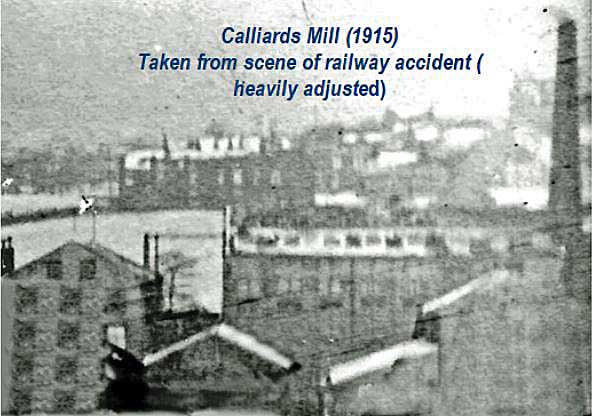
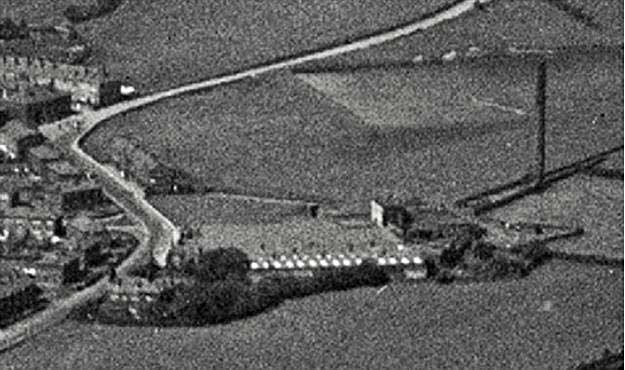
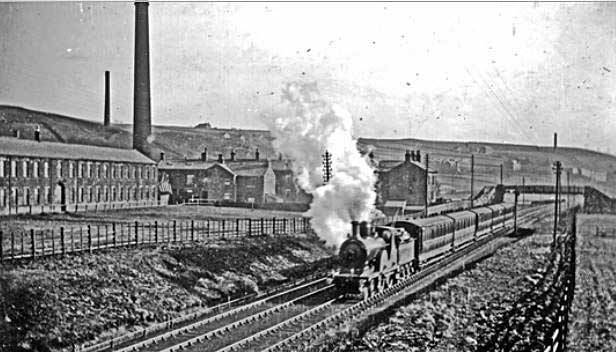
| Contact Us |
| Rechabites |
| Early Schools |
| Non-conformist schools |
| C of E and RC Schools |
| Board and Local Authority Schools |
| Richard Jay - Coach Operator |
| William Burrill |
| Richard Jay Haukier |
| Leach - Cycles to Haulage |
| H M Sutcliffe |
| J Grindrod & Son Ltd |
| R Rudge and Son Ltd |
| Canal Restoration |
| Clegg Hall & Smithy Bridge |
| Railways in Littleborough Centre |
| Littleborough Viaduct to Summit Tunnel |
| Summit Tunnel |
| Industrial Railways |
| Blackstone Edge Turnpike |
| Calderbrook Turnpike |
| Doghill to Steanor Bottom Turnpike |
| Todmorden Rd TP |
| Toll Roads |
| Industrial Histories |
| History Trails |
| Littleborough Book |
| Pubs & Inns |
| Co-op - Early Grpwth |
| Coop - Central Premises & Competition |
| Coop in 20th Century |
| Coop Decline & Change |
| LANCTAN |
| Schofield Iron Woks |
| Phoenix Iron Works |
| Clegg's Shore Mills |
| Consterdine textile Mills |
| Schofield Textile Mills |
| Rayon (Artificial Silk( Manufacture |
| Mills |
| Deanhead Chemical Works |
| Akzo Chemical Works |
| Starring Pottery |
| Summit Brickworks |
| Tetlows Pottery |
| Whittaker Pottery |
| Coal Mining Map |
| Starring Clay and Coal Mine |
| Cleggswood Colliery |
| Mining around Hollingworth |
| Shackleton - Coal Merchant |
| Possible Roman Littleborough |
| Blackstone Edge Roman Road |
| Roll of Honour |
| WW2 Heroes |